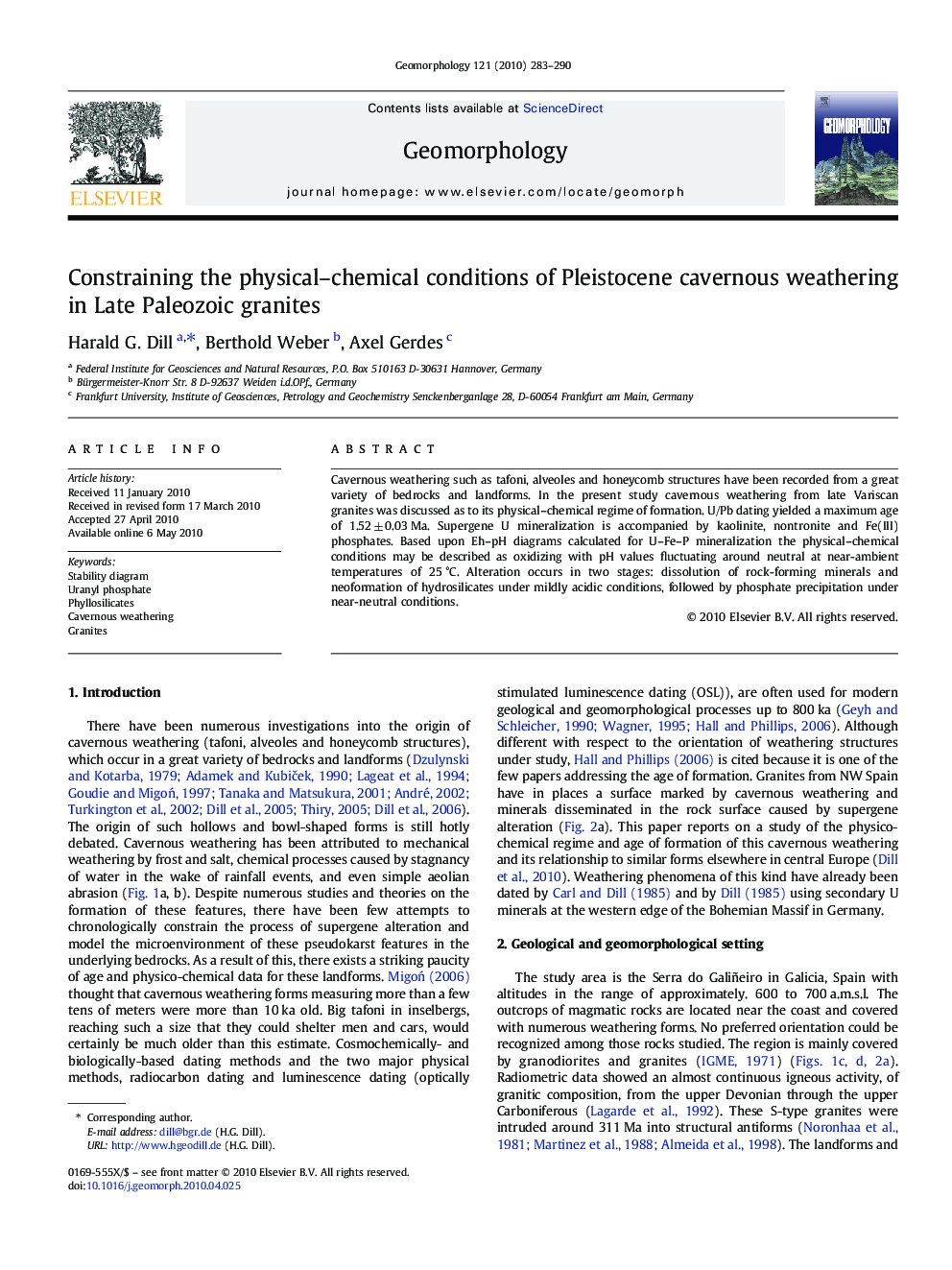| Article ID | Journal | Published Year | Pages | File Type |
|---|---|---|---|---|
| 4685779 | Geomorphology | 2010 | 8 Pages |
Abstract
Cavernous weathering such as tafoni, alveoles and honeycomb structures have been recorded from a great variety of bedrocks and landforms. In the present study cavernous weathering from late Variscan granites was discussed as to its physical-chemical regime of formation. U/Pb dating yielded a maximum age of 1.52 ± 0.03 Ma. Supergene U mineralization is accompanied by kaolinite, nontronite and Fe(III) phosphates. Based upon Eh-pH diagrams calculated for U-Fe-P mineralization the physical-chemical conditions may be described as oxidizing with pH values fluctuating around neutral at near-ambient temperatures of 25 °C. Alteration occurs in two stages: dissolution of rock-forming minerals and neoformation of hydrosilicates under mildly acidic conditions, followed by phosphate precipitation under near-neutral conditions.
Related Topics
Physical Sciences and Engineering
Earth and Planetary Sciences
Earth-Surface Processes
Authors
Harald G. Dill, Berthold Weber, Axel Gerdes,
